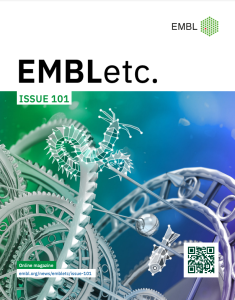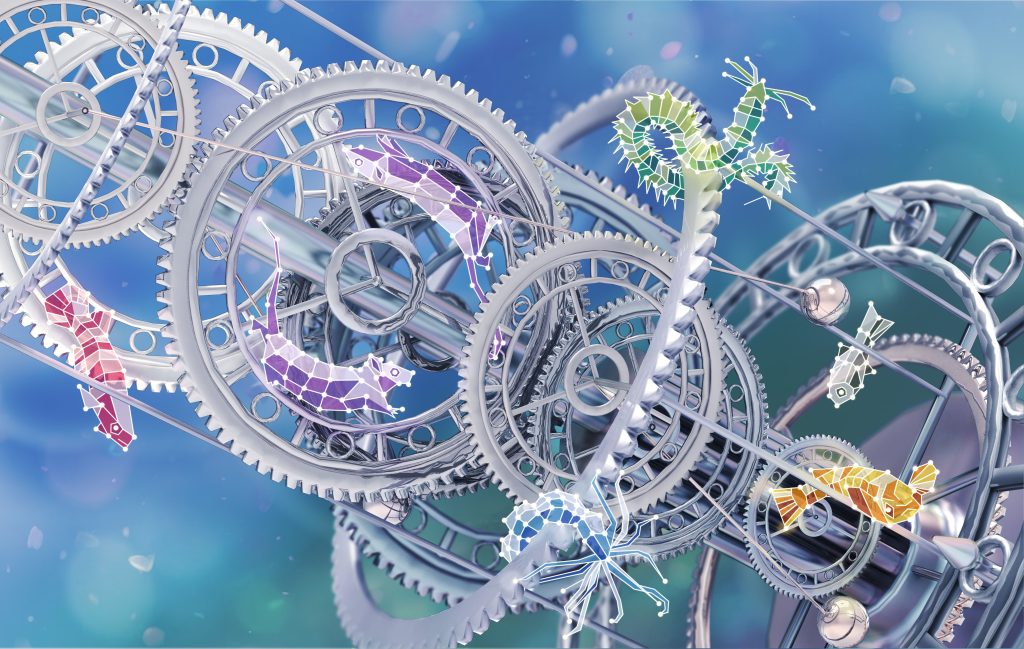18 September 2024
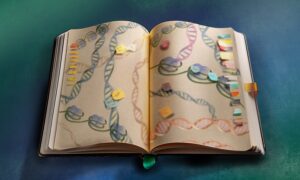
Science & Technology
Researchers have identified key cellular control sites that regulate gene expression and prevent the activation of ancient viral sequences in the genome.
9 May 2024

Science & Technology
A study from the Hackett group at EMBL Rome led to the development of an epigenetic editing system that allows to precisely program chromatin modifications at any specific position in the genome, to understand their causal role in transcription regulation.
1 May 2024
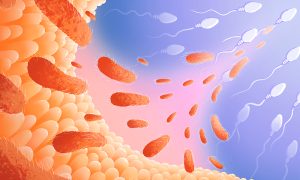
Science & Technology
Scientists from EMBL Rome and EMBL Heidelberg found that disrupting the gut microbiome of male mice increases the risk of disease in their offspring. Their findings suggest that a father’s pre-conception environment can have lifelong effects on offspring.
15 May 2023
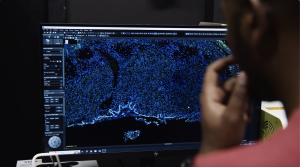
EMBLetc
Scientists at EMBL Rome are developing new paradigms to study the impact of diverse environmental factors on reproduction in mammals and disease risk in their progeny.
22 March 2023
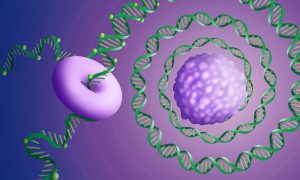
Using Oxford Nanopore long-read sequencing, EMBL scientists sequenced a primary childhood brain tumour known as a medulloblastoma, uncovering a novel complex mutation pattern.
20 February 2023
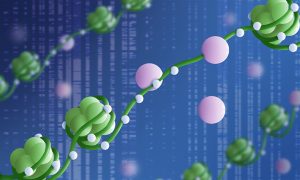
In a first-of-its-kind study, EMBL researchers have shown how DNA methylation across the genome contributes to the precise regulation of gene expression.
31 January 2023

EMBL AnnouncementsLab Matters
EMBL Rome group leader Jamie Hackett receives EUR 2 million for the ModLogic project, aimed at understanding how chromatin modifications impact gene activity.
2023
embl-announcementslab-matters
8 April 2022
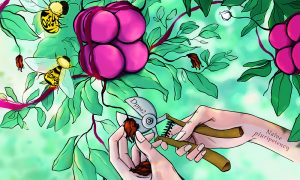
Science & Technology
Recent studies from the Hackett group at EMBL Rome have revealed new insights on the mechanism regulating transmission of non-genetic information during embryonic development, and inspired a scientific illustration
2022
sciencescience-technology
30 March 2021

Lab MattersPeople & Perspectives
The new group leader at EMBL Rome will study how embryos can inherit non-genetic information from their parents that causes stable and heritable effects
2021
lab-matterspeople-perspectives
2 July 2020
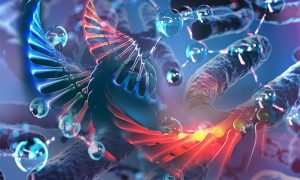
Science & Technology
A study conducted by the Hackett group at EMBL Rome has identified key factors controlling the complex system of gene regulation during early embryo development, shedding new light on the mechanisms behind these events and on their evolutionary implications. Their findings are published in Nature…
2020
sciencescience-technology
25 June 2020
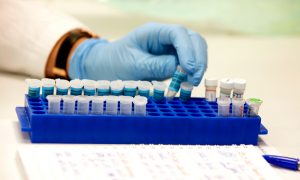
Science & Technology
EMBL scientists develop a new molecular tool to prevent SARS-CoV-2 infection in mice. This tool is able to cause targeted epigenetic modifications of specific genes in specific cell populations. They will use it in mice to target airway cells that express the ACE2 protein – the receptor that…
2020
sciencescience-technology
11 June 2020
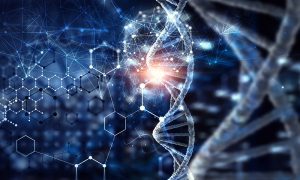
Science & Technology
Scientists at EMBL Rome unveil the mechanism behind the most studied epigenetic modification.
2020
sciencescience-technology
22 May 2020

Science & Technology
Researchers in EMBL’s Zaugg group have studied the causes of pulmonary arterial hypertension (PAH), a rare disease that causes high blood pressure in the arteries of the lungs. The study, carried out in collaboration with Stanford University School of Medicine, compared lung cells of patients…
2020
sciencescience-technology
6 February 2020
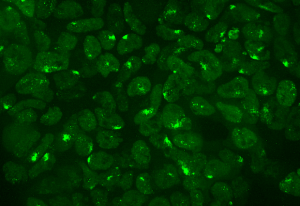
Science & Technology
Scientists provide important new insights into the molecular basis of X-inactivation
2020
sciencescience-technology
15 August 2019
Science & Technology
Understanding how ageing works at a molecular level
2019
sciencescience-technology
9 July 2019
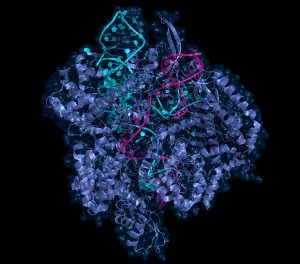
Science & Technology
What CRISPR may bring for the future of biology, and how it is used at EMBL
2019
sciencescience-technology
15 October 2018
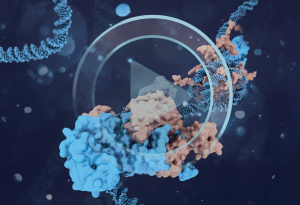
Science & Technology
EMBL scientists gain mechanistic insights into how cellular signalling controls gene regulation
2018
sciencescience-technology
28 May 2018
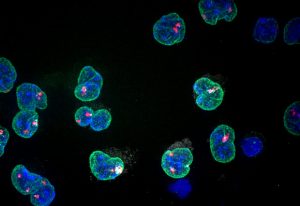
People & Perspectives
EMBL’s next Director General reflects on the questions that drive her research
2018
people-perspectivesscience
24 May 2018

Lab MattersPeople & Perspectives
EMBL-EBI PhD student launches start-up focusing on epigenetics and wellbeing
2018
lab-matterspeople-perspectives
14 March 2018
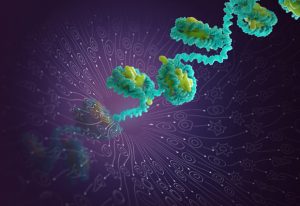
Science & Technology
EMBL scientists show how chromatin usage in individual cells reveals developmental trajectories
2018
sciencescience-technology
15 January 2018
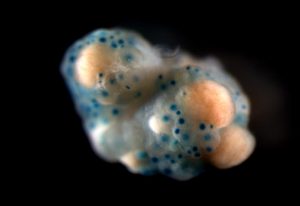
People & Perspectives
New EMBL group leader investigates the mystery of heritable gene silencing
2018
people-perspectivesscience
30 November 2017

EMBL AnnouncementsLab Matters
EMBL Director General elect, Edith Heard, awarded 2017’s Grand Prix Inserm for her work in epigenetics
2017
embl-announcementslab-matters
11 July 2017

EMBL AnnouncementsLab Matters
EMBL’s unit in Italy changes name to better reflect new research focuses and highlight its location
2017
embl-announcementslab-matters
5 May 2017
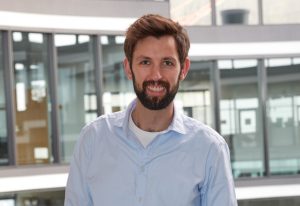
People & Perspectives
Meet Monterotondo’s new group leader for epigenetic reprogramming and inheritance, Jamie Hackett
2017
people-perspectivesscience
25 April 2017
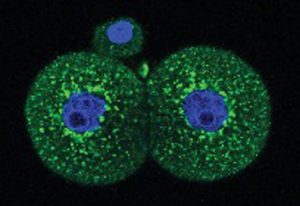
Science & Technology
EMBL scientists detect important function of genetic sequence our ancestors assimilated from a virus
2017
sciencescience-technology
13 April 2017
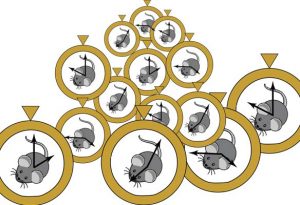
Science & Technology
EMBL-EBI researchers identify mouse epigenetic clock that could help scientists understand ageing
2017
sciencescience-technology
7 April 2017
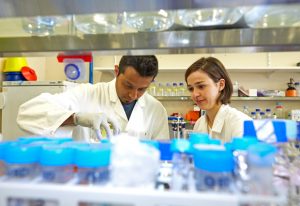
ConnectionsLab Matters
EMBL’s Monterotondo site strengthens links with the Italian scientific community
2017
connectionslab-matters
18 November 2016
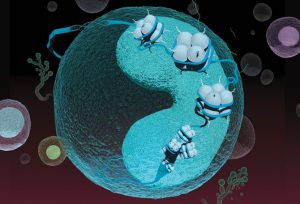
Science & Technology
BLUEPRINT: EMBL-EBI and the push to decipher the blood epigenome
2016
sciencescience-technology
11 January 2016

Science & Technology
New method is first to enable parallel profiling of the transcriptome and epigenome of a single cell.
2016
sciencescience-technology
25 November 2015

Lab Matters
Giuseppe Testa reflects on the myriad intersections of our digital and biological lives.
20 August 2015
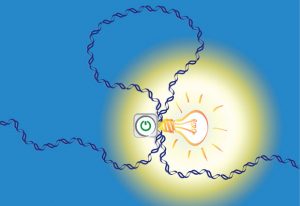
Science & Technology
EMBL scientists map ‘switches’ for distant control of gene expression.
2015
sciencescience-technology
14 October 2014
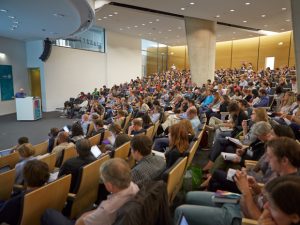
Experts from multiple fields come together to understand how the instructions in genes are read
2 July 2014
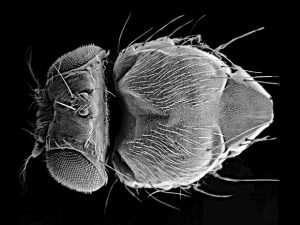
Science & Technology
Surprising finding: enhancers find their targets long before activation in Drosophila embryos
2014
sciencescience-technology
25 June 2014
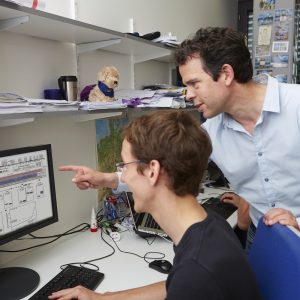
Science & Technology
Enabling neighbours: intact genes can cause cancer when placed near "enhancing" regions of DNA
2014
sciencescience-technology
25 May 2014
Science & Technology
How a DNA stretch influences face formation and contributes to common congenital malformations
2014
sciencescience-technology
19 July 2012

Science & Technology
What do you get when you dissect 10 000 fruit-fly larvae? A team of researchers led by the EMBL- European Bioinformatics Institute (EMBL-EBI) in the UK and the Max Planck Institute of Immunobiology and Epigenetics (MPI) in Germany has discovered a way in which cells can adjust the activity of many…
2012
sciencescience-technology
6 March 2008
Science & Technology
Epigenetic regulation – modifications to the structure of chromatin that influence which genes are expressed in a cell – is a key player in embryonic development and cancer formation. Researchers at the European Molecular Biology Laboratory (EMBL) in Heidelberg now gained new insight…
2008
sciencescience-technology
No matching posts found


































